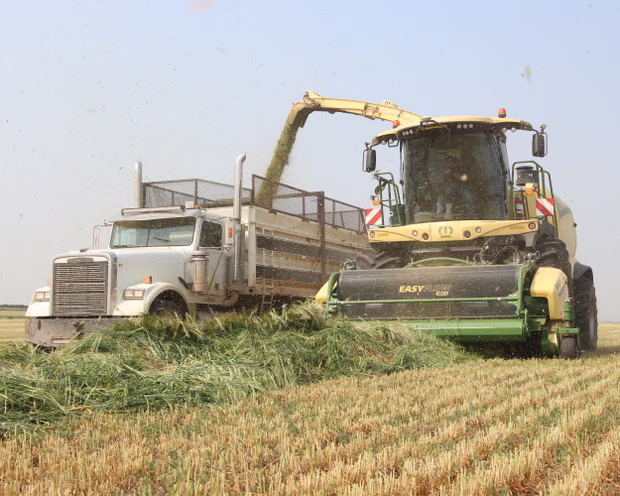One of Europe’s largest farm machinery companies, Krone, has paused exports of its equipment to the United States due to unexpected tariffs affecting hundreds of products. The measures, described as “alarming,” target items ranging from knitting needles and hair dryers to combine harvesters.
The US has imposed new levies on 407 products made from steel derivatives. This includes appliances, agricultural machinery, construction equipment, wind turbines, elevators, and bridge components. The list requires exporters to provide unprecedented levels of detail on the origin, weight, and value of every steel component, down to nuts and bolts.
Oliver Richtberg, head of foreign trade at the German engineering federation VDMA, described the documentation demands as nearly impossible. He said, “You have to get paperwork from the supplier to the supplier to the supplier. That is pretty much impossible.” He criticized the EU-US trade deal struck in July, calling it “not worth the paper it is written on,” and added that the bureaucratic hurdles are so severe that some companies have stopped exporting to the US.
Krone, headquartered in Lower Saxony, Germany, employs 10,000 people and relies heavily on the US market, which generates $130 million annually. Bernard Krone, the company’s fourth-generation chair, said the tariffs came as “a big shock.” He added that while the EU-US deal offered some predictability, the sudden publication of the steel derivatives list on 18 August changed the situation drastically.
“The list was very alarming for us. Added to that nobody could tell us what to do. Did the tariffs depend on weight, origin, or the price of raw steel?” Krone said. The US rules also allow the list to be updated multiple times a year, creating further uncertainty for exporters.
To ship machinery to the US, companies like Krone must certify the origin and value of all steel elements in their products. Some of Krone’s machines include as many as 18,000 parts, making compliance extremely challenging. Mistakes in paperwork could trigger penalties, including 200% tariffs on Russian imports applied to any product with incomplete documentation, according to US logistics company Flexport.
In response to the tariffs, Krone extended employee holidays by two weeks in August, paused exports, and temporarily suspended production on some lines. Despite consulting lawyers and officials on both sides of the Atlantic, Krone remains uncertain about the paperwork required by US customs.
To mitigate risks, the company plans to ship a “test container” of smaller machines, including mowers, rakes, and tedders. Bernard Krone said, “This week, maybe next week, we will ship them over, and then four weeks later we will know if we have the paperwork right. It is nerve-racking.”
US customers have expressed surprise at the tariffs, initially believing foreign companies bear the costs. Krone explained that American consumers ultimately pay higher prices, noting, “If the farmers’ prices go up, then at the end of the day it is the US citizen who goes into Walmart or Target who has to pay more for their daily goods.”
The paperwork requires proving that every nail, nut, and bolt does not originate in China, adding a significant administrative burden. The EU’s trade commissioner, Maroš Šefčovič, acknowledged the challenges at a Dublin conference and has contacted US commerce officials to address the issue.
Bernie Hart, vice-president of customs and business development at Flexport, described the new requirements as “top tier” in complexity. They demand granular data on the country of melt and pour for steel and the country of primary smelt and cast for aluminum, often down to individual stock units, including details such as color and size.
The new tariffs and documentation rules have already forced some European exporters to rethink their US strategy. Krone’s cautious approach reflects the broader disruption caused by the measures and highlights the complexity of navigating changing trade rules between the EU and the US.







